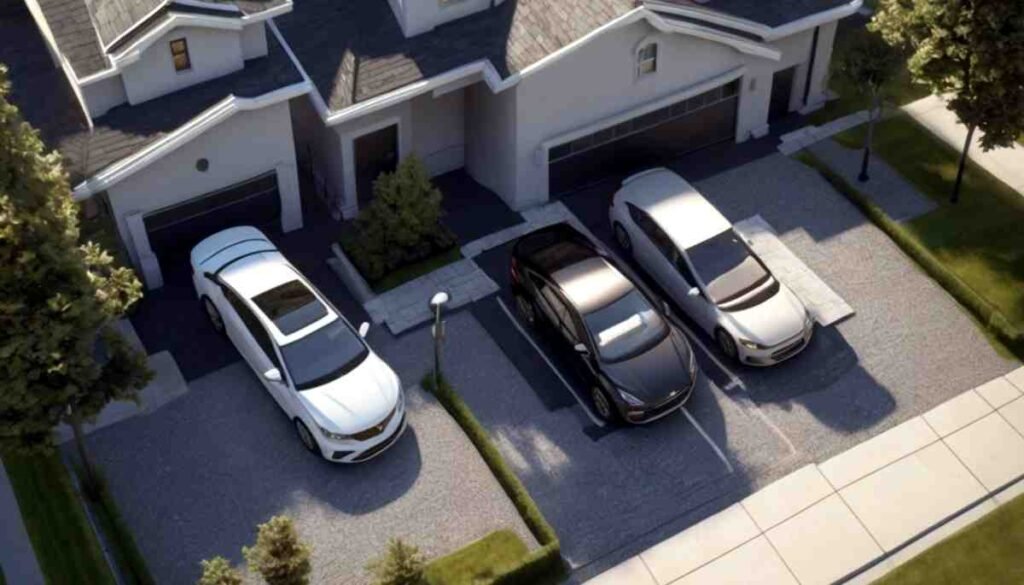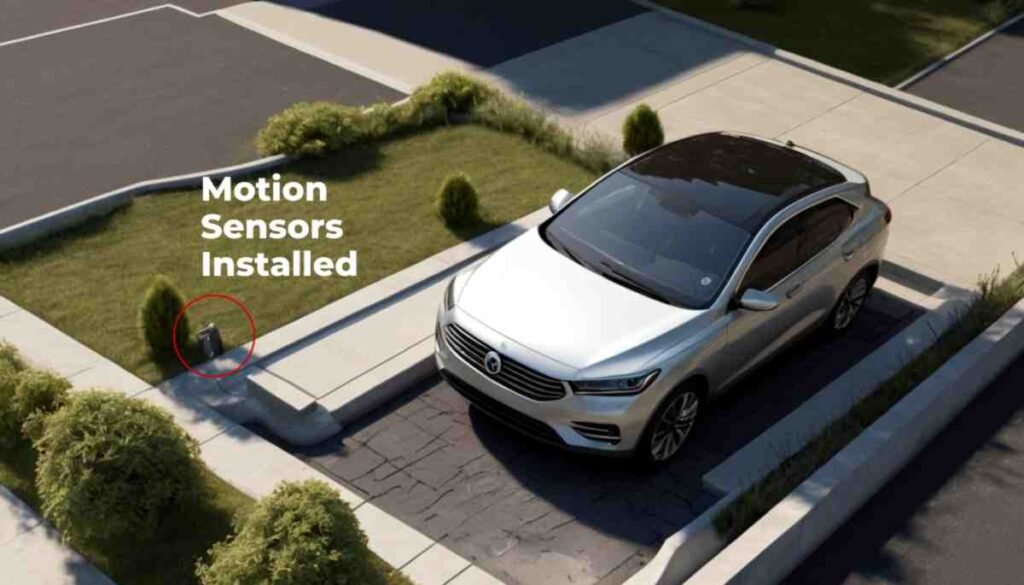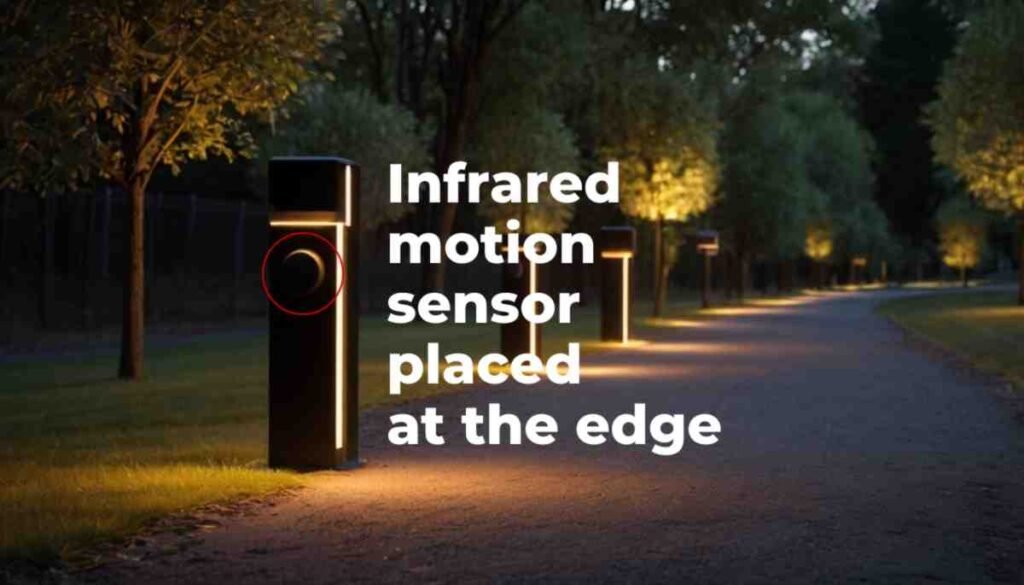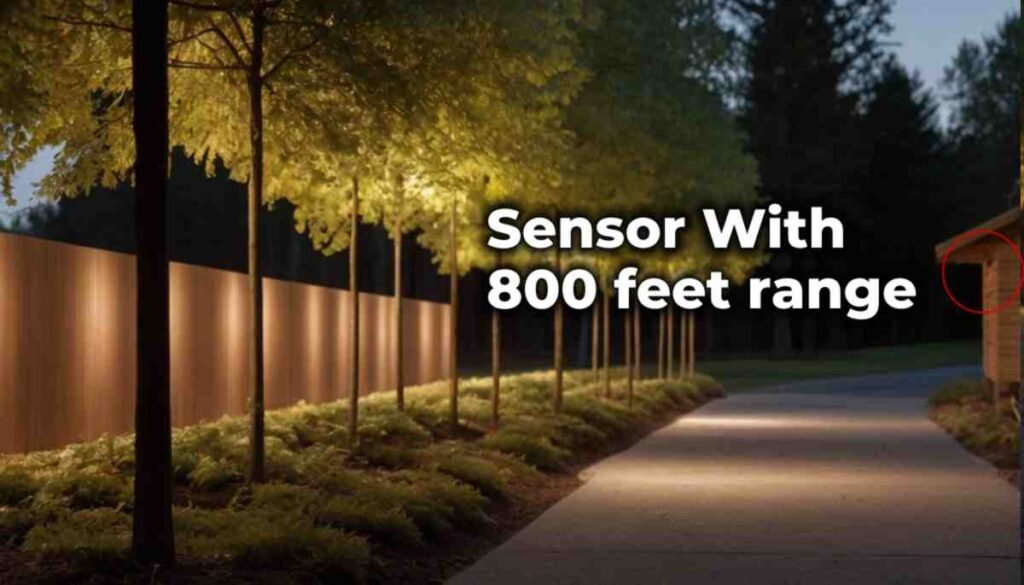Driveway alarms detect movement using sensors that monitor changes in infrared radiation, electromagnetic fields, or physical disruptions. These sensors identify specific types of motion, such as the heat from a person or the metal from a vehicle, which then triggers an alert. Infrared sensors detect changes in heat, while electromagnetic sensors pick up on metal disturbances.
Once triggered, the system sends a signal to a receiver, notifying the homeowner of any potential activity through sounds, lights, or smartphone alerts. This reliable detection system enhances security by allowing property owners to respond quickly to any movement.
How Do Driveway Alarms Detect Movement?
How Do Infrared Sensors Detect Motion?
Infrared sensors detect movement by picking up changes in infrared energy caused by the presence of heat. These sensors are passive, meaning they don’t emit radiation but instead sense heat emitted by objects, such as people or animals. When a warm object moves into the sensor’s detection zone, the change in infrared radiation triggers the alarm. Infrared sensors are effective in detecting human and animal movement but may produce false alerts from small animals.

How Do Electromagnetic Sensors Work?
Electromagnetic sensors detect metal objects by generating a magnetic field that is disrupted by the movement of a vehicle. When a metal object, such as a car, enters the detection range, the disturbance in the magnetic field triggers the alarm. Electromagnetic sensors are primarily used to detect vehicles and are less likely to trigger false alarms caused by pedestrians or animals.
What Are Ultrasonic and Photoelectric Sensors?
Ultrasonic sensors detect movement by emitting sound waves and measuring the reflected waves that bounce back from objects. When an object enters the detection range, it disrupts the reflected waves, causing the alarm to trigger. Photoelectric sensors, on the other hand, use light beams. Photoelectric sensors detect movement by using a beam of light that, when broken, activates the alarm. These sensors are effective for securing gates or specific entry points.
How Do Driveway Alarms Send Alerts?
How Are Alerts Communicated?
Driveway alarms send alerts through a transmitter, communicating with a receiver to notify the homeowner. The transmitter is connected to the sensor and sends signals to the receiver either wirelessly or through a wired connection. Wireless systems are more common and easier to install, using radio frequencies to send signals. Wired systems offer more stability but require professional installation.

What Are the Types of Alerts?
Driveway alarms typically provide three types of alerts: sound-based, visual, and smart notifications. Sound-based alerts are triggered through beeps, sirens, or chimes. Visual alerts often involve flashing lights that indicate activity. Systems with smart integration can send notifications to your phone or other devices, allowing you to monitor your property remotely.
What Are the Main Features of Driveway Alarms?
Wireless vs Wired Systems
Wireless driveway alarms use radio signals to transmit alerts and are easier to install, while wired systems use physical connections, offering more stability. Wireless systems are ideal for homes where flexibility and ease of installation are essential. Wired systems, although more reliable, are best suited for large properties or locations prone to interference.

What is the Coverage Range of Driveway Alarms?
The range of driveway alarms varies from 500 feet to over 2,500 feet, depending on the system. For smaller properties, a range of around 500-1,000 feet is typically sufficient, while larger estates may require systems with extended coverage of 1,500-2,500 feet or more.

What Power Sources Do Driveway Alarms Use?
Driveway alarms are powered either by batteries or solar energy. Battery-powered systems are portable and easy to maintain, though they require regular battery changes. Solar-powered alarms are more environmentally friendly and lower maintenance, provided there is sufficient sunlight to charge the system.
How Do You Choose the Right Driveway Alarm?
What Factors Should You Consider?
When choosing a driveway alarm, consider detection range, sensor type, power source, and additional features such as smart integration. The size of your driveway and the level of security you need will influence your decision. Wireless systems are generally more user-friendly, while wired systems offer more reliable long-term operation. Choose an alarm with smartphone integration if you need to monitor your driveway remotely.
What Are the Advanced Features of Driveway Alarms?
Advanced features of driveway alarms include multiple sensor zones, smart notifications, and the ability to differentiate between types of movement. Systems with multiple sensor zones allow homeowners to monitor specific areas, such as the driveway entrance and side gates. Smartphone integration enables real-time monitoring, while some alarms can differentiate between vehicles, pedestrians, and animals, reducing false alarms.
How Are Driveway Alarms Installed and Maintained?
How Do You Install a Driveway Alarm?
Driveway alarms are installed by placing sensors near the driveway entrance or along the perimeter of the property. For wireless systems, position the sensor within the optimal detection range and ensure it has a clear line of sight. Wired systems require professional installation to run cables from the sensor to the receiver. Make sure to secure sensors in weatherproof locations to protect them from the elements.
How Should Driveway Alarms Be Maintained?
Regular maintenance of driveway alarms includes checking battery life, ensuring sensors are unobstructed, and cleaning solar panels. Battery-operated systems need periodic battery replacement, while solar-powered alarms may require cleaning to ensure proper charging. Additionally, sensors should be inspected to ensure they haven’t been knocked out of alignment or obstructed by debris.
How Driveway Alarms Enhance Security
Driveway alarms detect movement using infrared, electromagnetic, ultrasonic, or photoelectric sensors and notify homeowners through sound, light, or smart device alerts. By choosing the right driveway alarm system, you can significantly enhance the security of your property, protecting it from unexpected visitors or intruders. Installing a driveway alarm provides peace of mind and allows you to take control of your home security.
